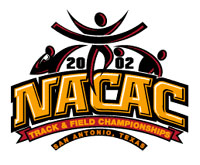Related Research Articles

Marion Lois Jones, also known as Marion Jones-Thompson, is an American former world champion track-and-field athlete and former professional basketball player. She won three gold medals and two bronze medals at the 2000 Summer Olympics in Sydney, Australia, but was later stripped of her medals after admitting to steroid use.

Tetrahydrogestrinone (THG), known by the nickname The Clear, is a synthetic and orally active anabolic–androgenic steroid (AAS) which was never marketed for medical use. It was developed by Patrick Arnold and was used by a number of high-profile athletes such as Marion Jones, Barry Bonds, and Dwain Chambers.
Konstantinos "Kostas" Kenteris, also spelled as Konstadinos "Costas" Kederis is a Greek former athlete. He won gold medals in the 200 metres at the 2000 Summer Olympics, the 2001 World Championships in Athletics and the 2002 European Championships in Athletics, making him the only European sprinter to win the gold medal in all three major competitions and the only European World Champion in the 200 metres races. Additionally, he has won two gold, three silver and two bronze medals in the European Cup, as well as three gold medals in the 200 metres at the Athens Grand Prix Tsiklitiria. He is also a 14-time golden medalist at the Greek Athletics Championships and a five-time golden medalist at the Greek Indoor Athletics Championships. He withdrew from the 2004 Summer Olympics, held in his home country, after a doping violation.

The 8th World Championships in Athletics, under the auspices of the International Association of Athletics Federations, were held at Commonwealth Stadium in Edmonton, Alberta, Canada between 3 August and 12 August and was the first time the event had visited North America. The music for the Opening and Closing Ceremonies was composed by Canadian composers Jan Randall and Cassius Khan. The ceremonies also featured a 1000 voice choir, and the Edmonton Symphony Orchestra.
In competitive sports, doping is the use of banned athletic performance-enhancing drugs by athletic competitors, as a way of cheating. As stated in the World Anti-Doping Code by WADA, doping is defined as the occurrence of one or more of the anti-doping rule violations set forth in Article 2.1 through Article 2.11 of the Code. The term doping is widely used by organizations that regulate sporting competitions. The use of drugs to enhance performance is considered unethical, and is prohibited by most international sports organizations, including the International Olympic Committee. Furthermore, athletes taking explicit measures to evade detection exacerbate the ethical violation with overt deception and cheating.
The Bay Area Laboratory Co-operative (BALCO) was an American company that operated from 1983 to 2003 led by founder and owner Victor Conte.
Ekaterini Thanou, also known as Katerina Thanou, is a Greek former sprinter. She won numerous medals in the 100 metres, including an Olympic silver medal at the 2000 Summer Olympics in Sydney, Australia, while she was the 2002 European champion in Munich, Germany. She had also been crowned world and European champion in the 60 metres at the indoor championships.
Victor Conte Jr. is the founder and president of Bay Area Laboratory Co-operative (BALCO), which is now defunct. BALCO was a sports nutrition center in California. In the late seventies Conte played bass with funk / R&B group Tower of Power, appearing on the band's 1978 release We Came to Play!.
Kelli White is an American former sprinter. She won two gold medals in the World Championships in Paris in 2003. However, on June 18, 2004, she was stripped of her medals, because she tested positive on a drug test. She retired from professional track in 2006.
Trevor Graham is a Jamaican-born American former sprinter and athletics coach. Following the BALCO scandal, the US Olympic Committee barred him indefinitely from all its training sites.
Patrick Arnold is an American organic chemist known for introducing androstenedione, 1-androstenediol, and methylhexanamine into the dietary supplement market, and for creating the designer steroid tetrahydrogestrinone, also known as THG and "the clear". THG, along with two other anabolic steroids that Arnold manufactured, not banned at the time of their creation, were hard-to-detect drugs at the heart of the BALCO professional sports doping scandal. BALCO distributed these worldwide to world-class athletes in a wide variety of sports ranging from track and field to professional baseball and football.

This article contains an overview of the sport of athletics, including track and field, cross country and road running, in the year 2004.

Norboletone, or norbolethone, is a synthetic and orally active anabolic–androgenic steroid (AAS) which was never marketed. It was first developed in 1966 by Wyeth Laboratories and was investigated for use as an agent to encourage weight gain and for the treatment of short stature, but was never marketed commercially because of fears that it might be toxic. It subsequently showed up in urine tests on athletes in competition in the early 2000s.
The BALCO scandal was a scandal involving the use of banned, performance-enhancing substances by professional athletes.
The use of anabolic steroids and performance-enhancing drugs in American football is officially prohibited by virtually every sanctioning body.
Donald Hardt Catlin was an American anti-doping scientist and one of the founders of modern drug-testing in professional sports.

In 2010 there was no obvious, primary athletics championship, as neither the Summer Olympics nor the World Championships in Athletics occurred in the year. The foremost championships to be held in 2010 included: the 2010 IAAF World Indoor Championships, 2010 European Athletics Championships, 2010 African Championships in Athletics, and Athletics at the 2010 Commonwealth Games.

The 2nd NACAC Under-25 Championships in Athletics were held in San Antonio, Texas, United States on August 9–11, 2002. As in 2000 the event was open for athletes younger than 25 years. A detailed report on the results was given. However, the results were affected by doping.
Tammy Thomas is an American former sprint track cyclist, who won a silver medal at the 2001 UCI Track Cycling World Championships in the individual sprint event. However, her career was ended after she was caught using anabolic steroids.

The 100 metres at the Summer Olympics has been contested since the first edition of the multi-sport event. The men's 100 metres has been present on the Olympic athletics programme since 1896. The 100 metres is considered one of the blue ribbon events of the Olympics and is among the highest profile competitions at the games. It is the most prestigious 100 metres race at an elite level and is the shortest sprinting competition at the Olympics – a position it has held at every edition except for a brief period between 1900 and 1904, when a men's 60 metres was contested.
References
- ↑ "IAAF threatens to ban Norway over drugs row". Turkish Daily News. Reuters. 1997-07-30. Archived from the original on 2007-06-28. Retrieved 2008-01-12.
- ↑ "Lawyers for former track coach Christos Tzekos say investigations show no ties to BALCO". IHT. AP. 2007-10-30. Retrieved 2008-01-12.
- Doug Gillon: Greek sprinters edge closer to oblivion after IAAF move . The Herald, Web issue 2177, December 23, 2004 (accessed 3 January 2005; copy at the Internet Archive)
- Heinz Peter Kreuzer: Saubere Medaillen . Deutschlandfunk 23 August 2004 (in German, accessed 3 January 2005)
- http://iht.com/articles/534473.html (International Herald Tribune, accessed 3 January 2005)